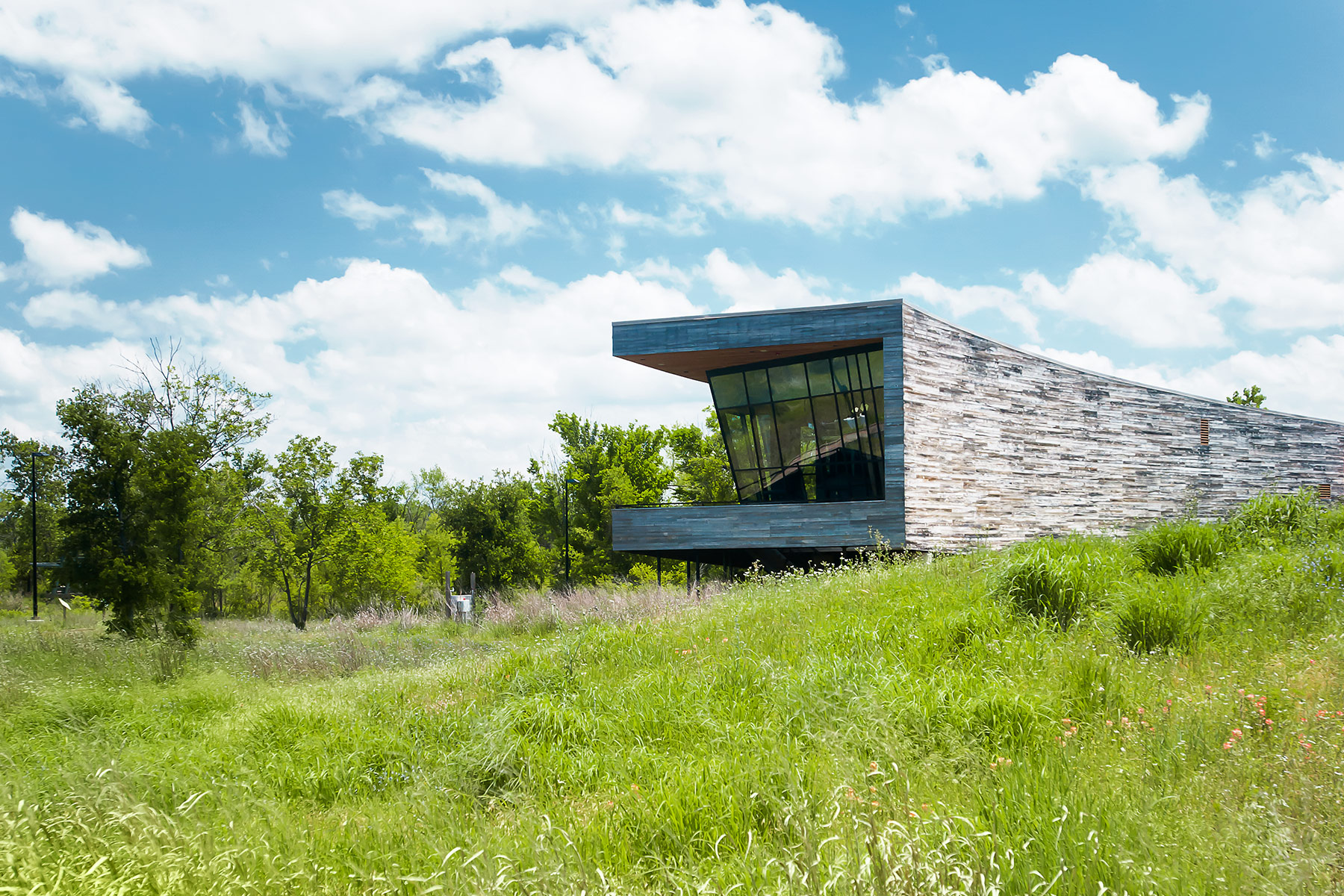Earlier this month, representatives of major energy companies including Saudi Aramco and Vistra flew into town to size up the closed Deepwood and Loop 12 landfills in southern Dallas. The city had identified 75 acres around the old dumps as prime real estate for a new project. Vendors were invited to submit their bids to build and run a solar farm that would provide affordable electricity to low- and middle-income residents.
The city canceled the site visit at the last minute, citing heavy rainfall from the previous night. But the energy companies’ reps were already in Dallas. Why wouldn’t they go check it out anyway?
Waiting for them was Ben Sandifer, a naturalist who has spent years holding the city accountable for its often bungled management of southern Dallas’ Great Trinity Forest.
Sandifer told them about the area, about the neighboring Trinity River Audubon Center and the surrounding wildlife habitat that could be damaged by the construction and operation of a solar farm. A whitetail deer stood nearby on the site of the potential solar farm and watched as, in the city’s absence, Sandifer addressed the energy reps. He—Sandifer, not the deer—told me that detail later.
Last Thursday, as abruptly as it canceled that tour, the city withdrew its request for proposals on the solar farm. “The City has determined it is in our best interest to cancel this project at this time,” reads an addendum to the request for bids. It hasn’t elaborated on why that is the case. Neither a city spokesperson nor Michael Gange, the director of Dallas’ office of environmental quality and sustainability, responded to messages asking for more information.
Just a couple days before, the city had posted another addendum, asking bidders to address the potential impact a solar farm could have on wildlife and migratory birds.
The initial request for proposals made no mention of wildlife, although—two weeks after I first asked about it, and a couple days before the project was canceled—a city spokesperson told me that Dallas officials were working with the Audubon Center to study best practices for mitigating any environmental impacts of a solar farm.
Developing a wildlife impact assessment of the sort the city belatedly requested would take time. Probably too much time to meet the Sept. 2 deadline that was set for solar operators to submit their proposals.
In a memo sent to City Council members on Friday, Assistant City Manager Joey Zapata detailed the history and intent of the solar project and announced its cancellation—without ever saying why it was canceled, despite citing “strong industry interest in the project.”
Zapata does say in the memo that the city will advance a community solar project of some kind “in the near future.” The $250,000 in this year’s budget that would have been spent on this project will instead go toward providing “solar power to select affordable housing projects,” according to the memo.
“As a Community Solar Project takes shape in the future, staff are committed to full coordination with City and community stakeholders, including, but not limited to the residents of the Shady Hills Addition, and the Trinity River Audubon Center to ensure equitable project development with minimal environmental impacts,” Zapata wrote.
Corey Troiani with the Texas Campaign for the Environment is among the area environmentalists who opposed the Deepwood solar farm project. Or tried to, at least. Before he could send the city a letter on behalf of the nonprofit, the request for proposals had been withdrawn.
He points to the possible environmental impact in a sensitive bioregion as well as the site’s history as an illegal dumping grounds, cleaned up only after a court order in the late 1990s. Construction and power infrastructure may not mix well with contaminants that are now capped at the former landfill, he says.
Troiani also says that the city held no public hearings on the project and organized no meetings with nearby residents. It conducted no environmental impact study. Dallas needs to invest more—much more than the Deepwood proposal called for—in renewable energy, including solar projects, he says. But it has to involve the public, and it has to involve experts.
There is a chance Dallas is heading back to the drawing board to re-tool and re-present its plans for a solar farm. There’s a chance those plans will include more detail on how a solar farm may or may not affect wildlife.
Meanwhile, that whitetail deer has less to worry about.
“We are 100 percent supportive of renewable energy development,” Troiani says. “Just not dumb renewable energy development.”
*A version of this story appeared Monday morning in the LeadingOff newsletter.





